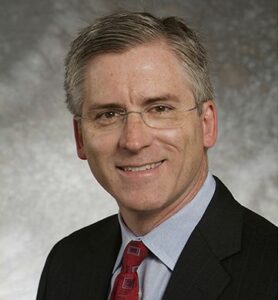By Alain Valles, CRMP, CSA, MS, MBA, Nonprofit Charitable Managing Director

Information you can trust
As Managing Director of the nonprofit charitable mortgage company, Helping Hands Community Partners, our mission is to educate people about the pros and cons of reverse mortgages and, when appropriate, to arrange financing or help with other housing options.
What is a reverse mortgage?
A reverse mortgage, also known as a Home Equity Conversion Mortgage (HECM), is a Department of Housing and Urban Development (HUD) government insured loan that allows eligible older homeowners to access the equity in their homes by receiving lump sum cash, a monthly check, and/or a line of credit. The key advantage of a reverse mortgage is you do not have make any monthly interest payments on the money you borrow. You are though, always obligated to pay your property insurance, real estate taxes, and abide by other loan guidelines.
Are reverse mortgages expensive?
The only correct answer is it depends on your situation. A reverse mortgage typically will have greater closing costs than a conventional loan. But when used appropriately, a reverse mortgage has more benefits. When compared to the costs of moving, a reverse mortgage is usually significantly less expensive than paying a real estate agent’s commission, moving costs, fixing your home to sell, and of course the emotional cost of downsizing and leaving your memories behind.
How much money is available to me?
A quick phone call or email will get you specific scenarios. The only initial information we need is:
- Estimated home value
- Current mortgage balance, if any
- Date of birth
- Ability and willingness to pay property expenses
When and how is a reverse mortgage paid back?
The primary events when a reverse mortgage is required to be paid back include:
- If you move and sell your home
- The last remaining homeowner passes away
- The home is no longer the primary residence
- The property falls into significant disrepair
- The real estate taxes or property insurance are no longer being paid
Reverse mortgages are typically paid back by selling the home. Family members have the option to keep the home but would need to pay off the reverse mortgage. There are several unique situations that I am happy to explain to you.
How may I use the money?
After paying off any prior mortgage on the home, you have no restriction on how you use the money. With that said, we always encourage people to be cautious how you spend your money as the purpose of a reverse mortgage is to augment your retirement plans and give you the opportunity to age in place and enjoy your quality of life. The most common uses of a reverse mortgage include:
- Increase monthly cash flow
- Pay off an existing mortgage or equity line
- Complete home repairs or improvements
- Pay real estate taxes
- Healthcare expenses
- Not burdening other family members
- Purchasing other property
- Legal expenses including divorce
- Having cash reserves for unexpected life events
- Improving one’s quality of life
- Gaining financial peace of mind
What do I do next? Take action!
If you or a friend have questions about reverse mortgages, just give me a call or email and I’ll be happy to explain all the details and send you the free “How to Use Your Home to Stay at Home” 36-page book. This is the official reverse mortgage consumer booklet approved by the HUD and published by the National Council on Aging. I look forward to speaking with you. It’s a good life.
Alain Valles is a Managing Director of Helping Hands Community Partners, Inc. and was the first designated Certified Reverse Mortgage Professional in New England. He obtained a Master of Science from the M.I.T. Center for Real Estate, an MBA from the Wharton School, and graduated summa cum laude from UMass Amherst. Valles can be reached directly at 781-724-6221 or by email at av@hhcp.org.









